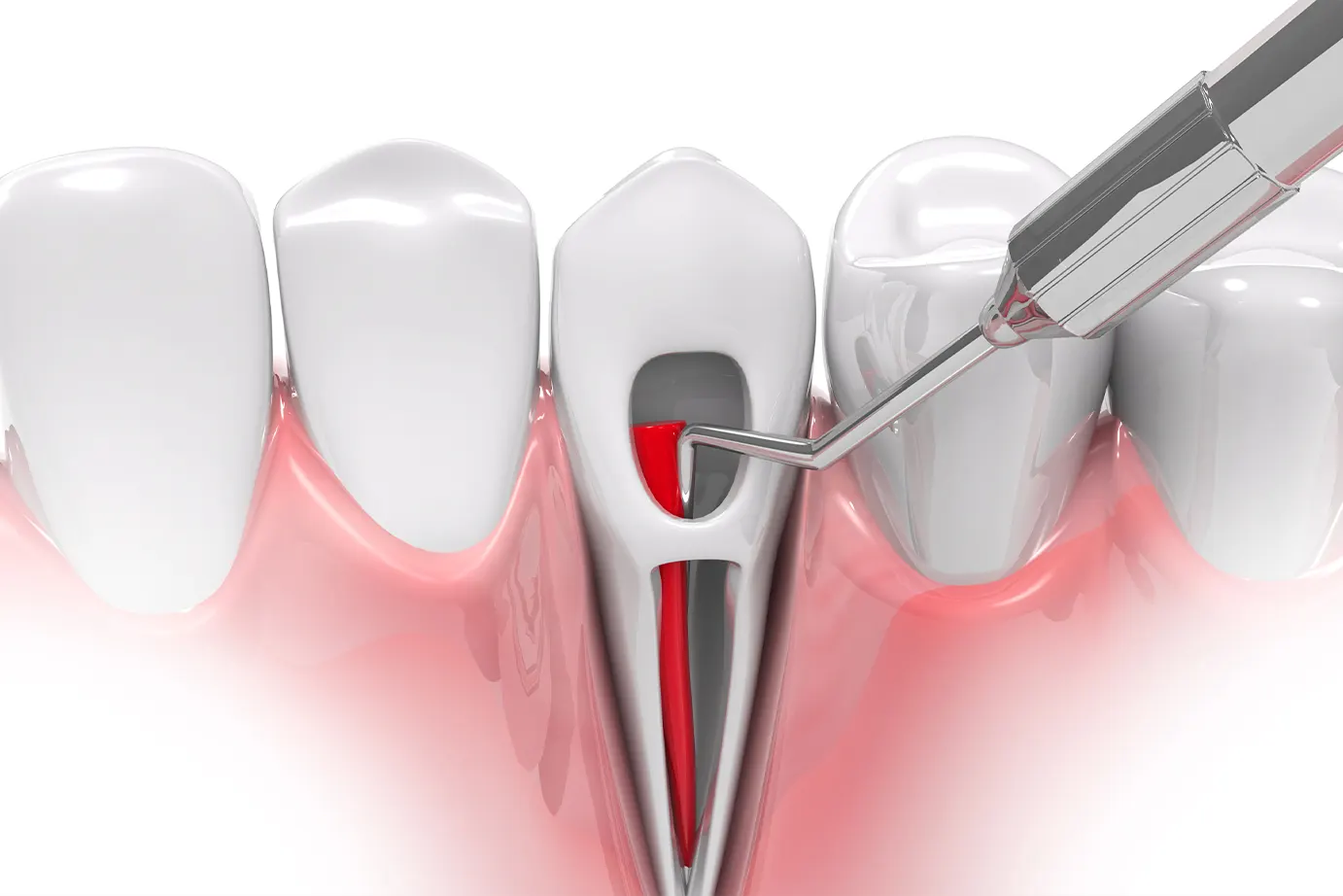Schedule an Appointment
**Requested time is not final until you receive confirmation from our office. Please do not submit any Protected Health Information (PHI).
Root canal therapy is a restorative dental procedure designed to save a tooth that has been severely compromised due to infection or deep decay.

When bacteria reach the inner pulp of your tooth, the resulting infection can be extremely painful and dangerous if left untreated. Root canal therapy removes the infection, relieves pressure, and prevents the spread of inflammation while maintaining your real tooth structure. At Smile With Style in Fullerton, CA, Dr. Kirk Larson and Dr. Timothy Hedrick tailor every treatment plan to your individual needs, performing root canal therapy using a conservative and gentle approach. With advanced diagnostic technology and patient-comfort innovations like the DentalVibe system and warmed anesthetics, we redefine what a root canal experience can feel like: soothing, precise, and anxiety-free. The goal is not just fixing the tooth: it’s protecting your wellness for the long haul.
Root canals are no more painful than getting a simple filling when done with modern techniques.
Root canal therapy allows you to keep your original tooth instead of extracting it, helping maintain bite alignment, jawbone integrity, and your natural smile’s aesthetics.
Once the infected pulp is removed, the pressure and inflammation subside, often providing immediate relief from sensitivity, swelling, or throbbing discomfort.
Addressing the infection early through a root canal helps you avoid complex procedures like tooth extractions, implants, or bridges down the road.

Using digital imaging like iTero scanners, Dr. Larson or Dr. Hedrick thoroughly assess the extent of the infection and plan your treatment with precision. Our conservative philosophy ensures that root canal therapy is only recommended when it's truly necessary for preserving your tooth and improving your comfort. You’ll be informed and supported every step of the way, with a care team that always listens and answers your concerns.
Your comfort is our top priority. We use ultra-thin needles, warmed anesthetic, and vibration distraction techniques like DentalVibe to make the numbing process virtually painless. Once the area is fully anesthetized, a small access point is created in the tooth to reach the infected pulp chamber. For anxious patients or those with past dental trauma, we focus on calming, tranquil surroundings and care at your pace.
The infected or damaged pulp is carefully removed, and the root canals are cleaned, shaped, and disinfected using high-precision tools. After cleaning, the area is filled with a biocompatible material that stabilizes the internal structure of the tooth. Finally, a custom crown, crafted from aesthetic, metal-free materials, is placed to seal and protect the tooth, restoring both its function and appearance with natural-looking results.
Find answers to some common questions about Root Canal Therapy.
Root canal therapy has a reputation for being painful, but advances in dental technology and anesthesia make the procedure relatively painless. Most patients report that the experience is similar to getting a regular filling. The pain you might associate with a root canal is often due to the infection in the tooth, which the procedure is designed to eliminate. After the procedure, some mild discomfort or soreness may occur, but it is usually manageable with over-the-counter pain relievers.
After a root canal, it’s normal to experience some sensitivity, mild pain, or swelling in the treated area for a few days. These symptoms can usually be managed with over-the-counter pain medications. It’s important to avoid chewing on the treated tooth until it’s fully restored, typically with a crown or filling. Good oral hygiene, including brushing, flossing, and regular dental check-ups, is essential to ensure the long-term success of the treatment.
Give us a call to speak with one of our friendly team members.